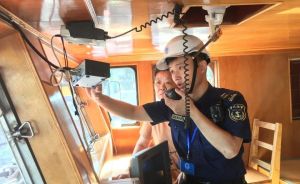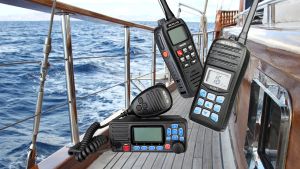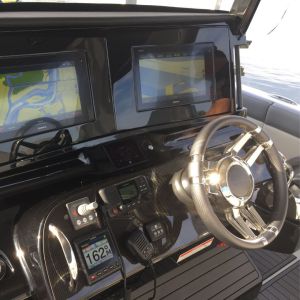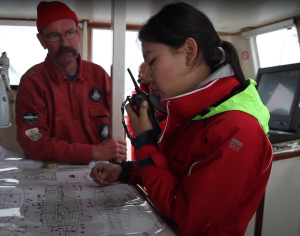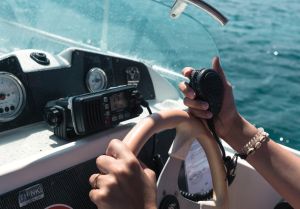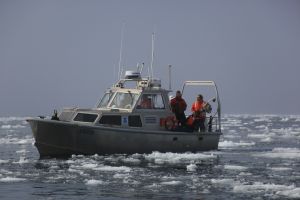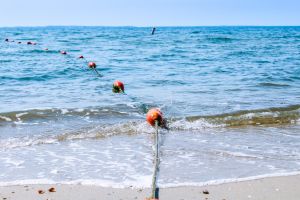Tag Archives :HF
Why can the cost of VHF marine radio vary so much
- Dec 08,2021
- Leeric
- 0 Comments
- Maritime knowledge
The low cost VHF Marine Radios, whether they are fixed or handheld, provides you with basic functionality. This means, that they will provide basic communications well, but will not likely to have additional features. The performance of the radio will be quite adequate and help keep you safe while on the water. ...
Difference between Fixed VHF radios versus Handheld radios
- Dec 08,2021
- Leeric
- 0 Comments
- Maritime knowledge
The reach of a two-way radio is largely dependent on the output power of the radio. This is measured in watts. As an example, a typical fixed mount radio outputs at 25 watts and is good for a range of in excess of 50 km unobstructed. Handheld radios typically transmit at 5 to 6 watts and are therefore good for a range of 12 to 18 kms. This is only a rough measure as other aspects affect the effective range of a VHF radio. The antenna type, design and length will have an effect on range. ...
VHF marine radio is suited to some boating activities than others
- Nov 25,2021
- Leeric
- 0 Comments
- Maritime knowledge
VHF radio is also better suited to some boating activities than others. Making a call by handheld VHF radio for your boating activity. Always have a handheld, waterproof VHF radio on your person, preferably attached to your lifejacket. Also carry a registered emergency locator beacon, particularly when venturing any significant distance off the coast. Locator beacons work both at sea and on inland waterways. An EPIRB is preferred, but a PLB is a useful alternative. ...
You are in trouble in the sea, you need rescue
- Nov 25,2021
- Leeric
- 0 Comments
- Maritime knowledge
A VHF radio is your best two-way communication device at sea. With a VHF radio, calls can be received by Maritime Coastguard and by vessels which may be in position to give immediate assistance. A VHF marine radio also helps ensure that storm warnings and other urgent marine information broadcasts are received. ...
Marine VHF radio for leisure sailors
- Nov 18,2021
- Leeric
- 0 Comments
- Maritime knowledge
There are many ways to communicate with others at sea ranging from signal flags to satellite phones. While it is not a legal requirement in most countries, leisure sailors are strongly encouraged to use a VHF DSC (Digital Selective Calling) Radio as their primary means of communication, since this is used by the rescue authorities and commercial shipping. ...
VHF marine repeater
- Nov 11,2021
- Leeric
- 0 Comments
- Maritime knowledge
VHF communication range depends mainly on the height of the antennas of the transmitting and receiving stations. By using VHF marine repeater stations, the range of ship to ship, ship to shore and shore to ship communications can be significantly increased. VHF marine repeaters are unmanned shore installations usually located at geographically high points. They are designed to transmit and receive simultaneously and will retransmit, or ‘repeat’ all signals received. ...
Making a distress call
- Nov 11,2021
- Leeric
- 0 Comments
- Maritime knowledge
The distress call Mayday may be used only if the boat is threatened by grave and imminent danger – for example, sinking or on fire – and immediate assistance is required. This distress call has absolute priority over all other transmissions and may be transmitted only on the authority of the skipper or the person responsible for the safety of your vessel. ...
Calling for help devices
- Nov 04,2021
- Leeric
- 0 Comments
- Maritime knowledge
There are a number of different products that can be used to call for help. With all activities we strongly encourage you to take a means of calling for help that is most suitable to your activity. We advise that you know how to use it, and keep it within reach at all times. ...
AIS operational factors
- Oct 19,2021
- Leeric
- 0 Comments
- technology suggestion
AIS is a tool to reduce the hazard of collision with another vessel, and from a small-boat standpoint, this basically means not placing your vessel in the path of another. Both the International Regulations for Avoiding Collision at Sea (commonly called COLREGS) and the U.S. Inland Navigation Rules spell out the maneuvers required of all vessels when avoiding collision. Correctly interpreting AIS information to accomplish this requires a working knowledge of AIS characteristics. ...
AIS Overview
- Oct 19,2021
- Leeric
- 0 Comments
- technology suggestion
Its been several years since the Automatic Identification System (AIS) became a mandated way of life for the commercial side of the marine industry. it has become one of the more valuable electronics ...

